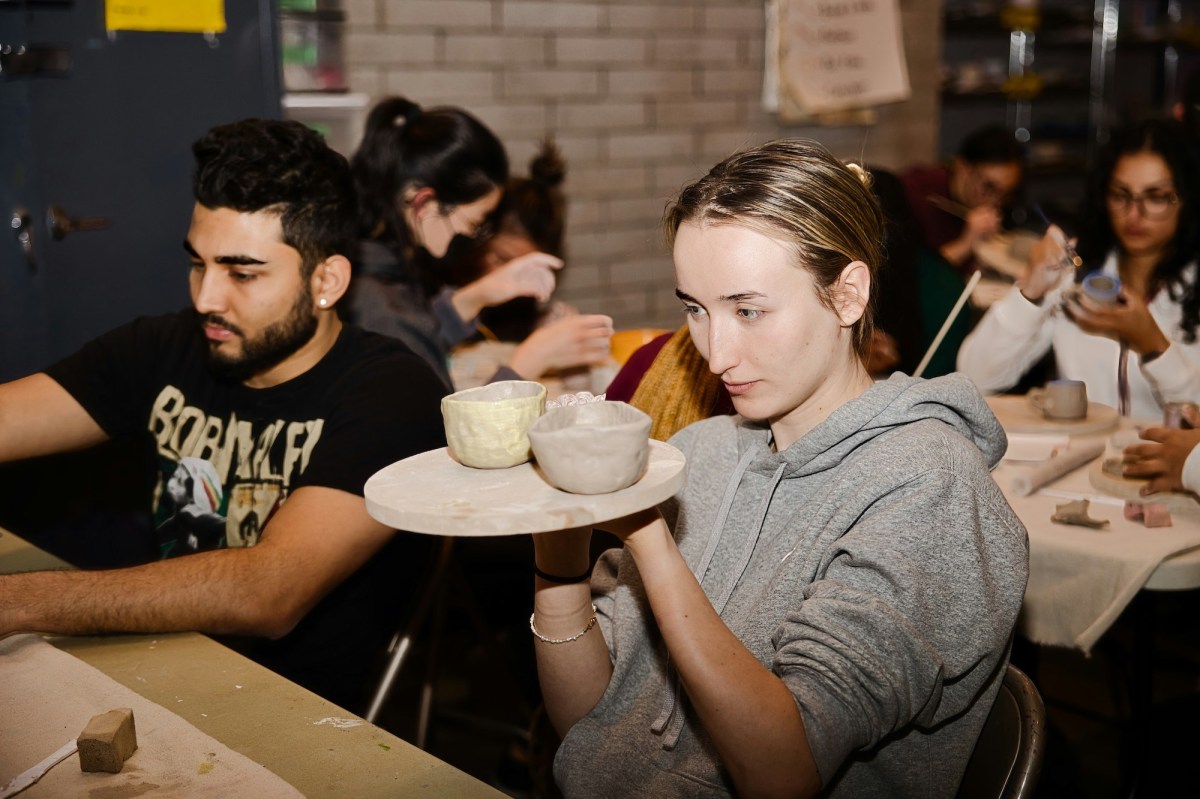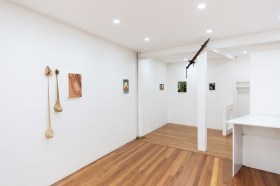Times are tough right now, especially as an artist – so ways to generate income, without compromising your practice, are front of mind.
One way to utilise your skills to make some extra money is to consider running workshops. However, be warned. It is not as simple a proposition as it may sound, and you will need to weigh up the pros and cons.
In a three-part series, ArtsHub will unpack everything you need to know about workshops – are they a good add-on to your studio practice, how do you get started, what’s the best way to market them for success, and what advice is there from artists who have got the balance right.
Workshops are not exclusive to visual arts and studio practices. Performing artists and writers equally have valuable skills to share that are in high demand and can be monetised.
Table of contents
What’s the difference between workshops and art classes?

The difference between a workshop and an art class is simply about time. Workshops are largely stand-alone events, while art classes are a commitment to a series of sessions.
I have run six-week professional development classes for arts professionals, intensive weekend writing workshops for artists and online booked one-hour studio tumbler making experiences. All have a market. You need to understand what option is best for you.
Classes, or a course, are very much about developing skills, and aimed at expanding one’s professional toolkit. Workshops are often about pure joy – that single session where you play with a new medium, new technique or new studio idea.
As creatives we often overthink this as an option (because we are perfectionists). It doesn’t have to be about a high skill level. Artists can underestimate the pleasure that people have making something, and then proudly taking it home to share with friends and family.
Makers and creatives at all stages of their professional journey can lead a workshop. You just need to be very clear what it is that you want to offer, and can manage, without adding unnecessary stress.
The further advantage to workshops, is that they are social experiences, and can be done with a friend, and so doubling your income quickly.
The pros and cons to running workshops

One of the pros is that there is a huge demand for all sorts of creative workshops – and it is a demand that continues to escalate. The biggest con, is the administration behind running them.
Start by thinking of what you can offer in a single session, and then research your competition in this space, and what is being charged for that workshop. From the get-go, you need to evaluate this as a cost-time equation – not just ‘this would be a nice thing to do’.
Read: 5 ways to save money, but still support the arts
A further pro is that workshops build exposure for your art practice / business, and will expand your network of contacts. These are people willing to invest in you. And while today that may be via a workshop, tomorrow they could purchase your work, or your book (better still suggest it to their book club expanding sales), or decide to attend your play. They are also more likely to support your other events and initiatives, feeling ‘part of the family’ having had that intimate workshop experience.
Plus, workshops are good for boosting your confidence, and the skill of speaking about your work – great assets to carry into the other side of your professional career.
How much to charge for a workshop?

The big question is value-cost equation. Is it worth the investment of time, marketing and headspace for the outcome?
All creatives hate pricing their work. We would recommend starting by offering single workshops first, to ascertain if you actually enjoy presenting. This may not be the right fit for you, even if profitable.
The first consideration is time. What is the cost of your time – your per hour rate to present the workshop (plus its set-up and clean-up), and your per hour cost for administration. You may want to start with a lesser fee of say $25 to cover yourself, and then, as you grow in experience and demand as an instructor, you can increase your fees.
Write a list of the costs of materials, the printing of handouts, any marketing costs – real costs. A hint on the cost of materials – charge the retail price (not the wholesale) to cover yourself and pad your profit.
Read: 5 side hustles for writers
In terms of materials, it is common to offer base materials to produce the workshop item included in the price, but then allow the option for add-ons. This again is a great way to boost your profit.
Next you need to work out your costs on an average attendance level – your workshops will not always sell out, so you don’t want them to be costing you. You may need to set a minimum sign-up number to go ahead. And remember to add some pad or profit.
Investing in your arts business
There will be investments that you may need to make, such as equipment (all tax deductible), on which you don’t get an immediate return. You will need to ensure you have enough equipment for each person in the class. Sharing is not a great option for workshops. It can really drag out time, and leave people unsatisfied when they have to wait. Plus it can pull you away from instructing, trying to keep them occupied.
Another investment, which is abstract, is the time you commit to researching and designing the workshop content and handouts for the participants. But, with each use, that investment in your business is paying off.
Administering workshops can be one of the biggest cons – the time required for taking bookings, money, cancellations, answering emails with questions etc… Some website hosts offer these booking facilities, and there is also scheduling software that you can buy to make this easy for you. Again, this cost is a consideration for the long term – to make this part of your creative business.
A final tip, turning back to that topic of time. Workshops invariably go over time. People love the experience and want to linger and chat. One-on-one time is what it is all about. You can estimate a time-based price for the workshop, but we would recommend to price more on your tangible costs and outgoings. And yes, take the time to chat, because word of mouth is your best marketing tool.
Advice on pricing workshops
From experience, I can say that when we started offering workshops in our studio, we kept them inexpensive to grow via word of mouth and support of our business. But a year down the track, our workshops were taking over our core studio practice, as they became too popular (because they were too cheap).
We were offering too much – because we loved sharing what we do – and effectively ended up burning ourselves out, then felt guilty about pulling back on offering them. We learned that we are still selling out our workshops at double the price.
And here’s a tip I learned many years ago working in galleries – it takes the same amount of effort to sell a $5000 work of art as it does a $15,000 work. The same goes for workshops. Whether you charge $100 or $300, the people who want to do these classes will find you, and pay.
At the end of the day, workshops are profitable and can increase cash flow. However, they are not the right personality match for everyone. They are social events, and they do feel like they take over your studio practice, even if just for a day once a month.
Our biggest tip is to keep the offering simple. You will sell workshops just as well making a simple candle in one hour as a complex poetry workshop over three hours. Know your skills, know your stress levels, and place your ambition in the financial outcome, rather than the skill or take-away shared with the participant.
Catch our next story in this three-part series, which will include tips on setting up, and teaching, a workshop.






